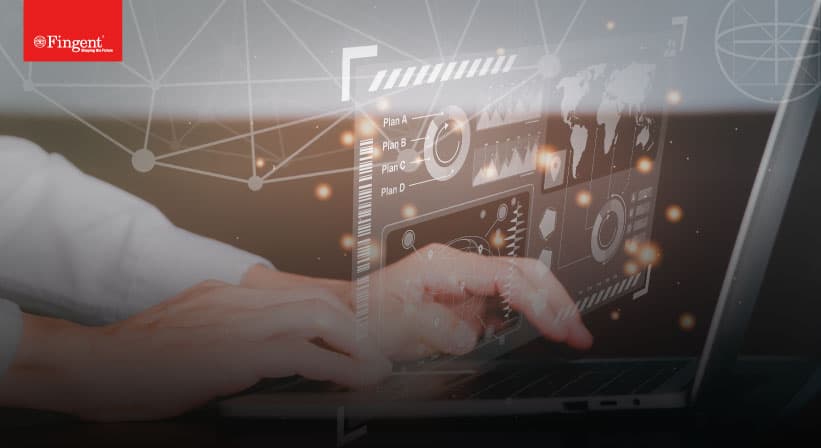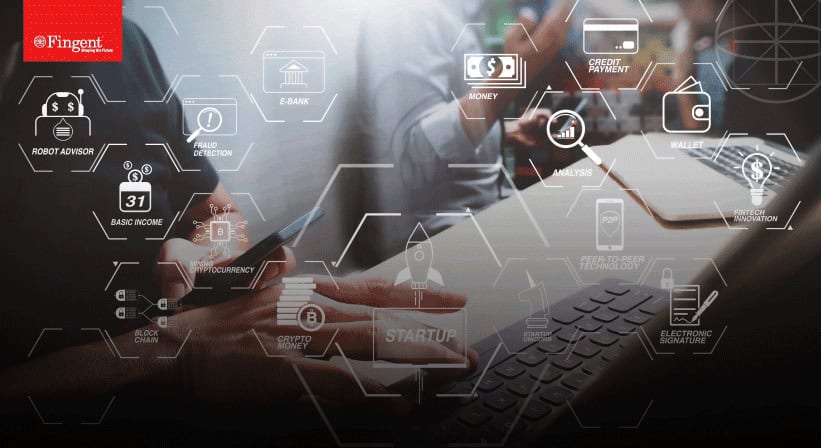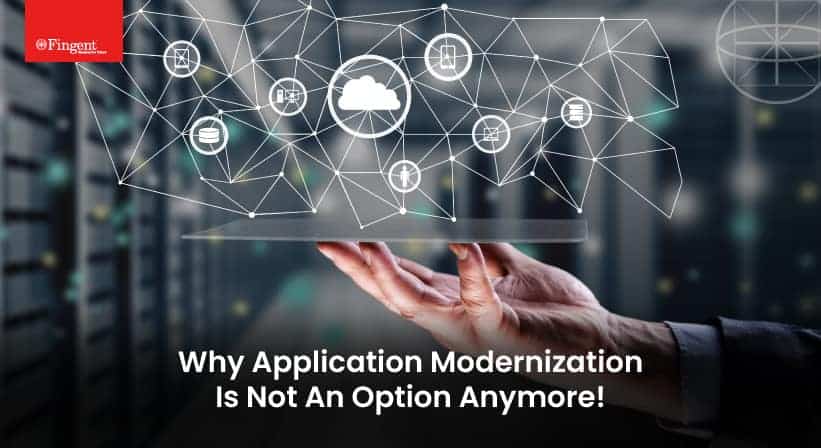Types of Application Software: A Detailed Guide for 2022
Exploring the different types of application software that businesses need today!
- Introduction
- What is Application Software?
- Different Types of Application Software Used by Businesses
- Types of Application Software Based on Shareability and Availability
- Functions of Application Software
- Business Benefits of Application Software
- The Cost of Application Software Development
- Develop Your Application Software with Fingent
Introduction
Application software or simply application (app) has become our everyday companion. From the Microsoft Office suite of products to Gmail and Facebook Messenger, all of us use different types of application software to meet various personal and professional purposes.
We have all come a long way from the old-generation of computers that had just one application software, which was installed onto individual machines using floppy disks and CD ROMs. Today, we have multiple types of application software to suit every need and purpose. While that is exciting, it also places before us an array of choices. You may be wondering which of these application software fulfills the needs of your business. To help you with this, here is a detailed guide to the types of application software.
Read more: Fingent Ranked as India’s Top Software Developer for 2022
What is Application Software?
Application software is a computer program that performs a specific function, be it educational, personal, or business. It is also known as an end-user program or a productivity program. You can think of your PC as a cake and the application software as the frosting on top of it. It is the application software (frosting) that you, the user, gets to see upfront when you are working with the computer.
Application software is developed to assist you with a particular process that may be related to creativity, productivity, or better communication. It helps you in completing your tasks, be it jotting down notes, completing your online research, setting an alarm, keeping an account log, or even playing games.
Application software programs are specific in their functionality and do the job that they are designed to do. For instance, a browser is an application used specifically for browsing the Internet. Similarly, MS PowerPoint is an application designed specifically for making presentations. All the apps that we see on our smartphones are examples of types of application software.
Read more: Mobile Application Development: Your Ultimate Guide for 2022
Different Types of Application Software Used by Businesses
Picking up the right application software for personal or business use can improve function and efficiency. Understanding the different types of application software will help you save cost, time, and resources, enhance productivity, and improve decision-making.
Some of the commonly used application software are:
- Word processors
- Graphics software
- Database software
- Spreadsheet software
- Presentation software
- Web browsers
- Enterprise software
- Information worker software
- Multimedia software
- Education and reference software
- Content access software
While the list of application software is more exhaustive than this, we have tried to detail a few of the important types of application software below.
1. Presentation software
Presentation is a type of application software that enables you to represent your thoughts and ideas with ease and clarity by using visual information. It lets you display the information in the form of slides. You can make your slide more informative and engrossing by adding text, images, graphs, and videos. It has three components:
- Text editor to input and format text
- Insert graphics, text, video, and multimedia files
- Slideshow to display the information
2. Web browsers
Web browsers are application software used to browse the internet for locating and retrieving data across the web. The most popular web browsers are Google Chrome and Internet Explorer. Other examples of browsers include Firefox, MS Edge, Safari, etc.
3. Multimedia software
Multimedia application software lets you create or record images, and create audio or video files. This software is extensively used in animation, graphics, image, and video editing. Popular examples are VLC media player and Windows media player.
4. Education and reference software
This application software, also termed as academic software, is specifically designed to facilitate learning of a particular subject. Various kinds of tutorial software are included in this category. Some of these are JumpStart, MindPlay, Moodle, and Kid Pix.
5. Graphics software
Graphics application software allows you to edit or make changes in visual data or images. It comprises illustration and picture editor software. Adobe Photoshop and PaintShop Pro are a few examples of graphics software.
6. Spreadsheet software
Spreadsheet application software is used to perform calculations. In this software, data is stored in a table format. The intersecting area, called cells, are separated to define fields such as text, date, time, and number. It allows the users to provide formulas and functions to perform calculations. Microsoft Excel and Google Sheets are examples of spreadsheet software.
7. Database software
Database application software is used to create and manage a database. Also known as a DBMS (Database Management System), it helps you organize your data. So, when you run an application, data is fetched from the database, modified, and is stored back in the database. Oracle, MySQL, Microsoft SQL Server, PostgreSQL, MongoDB, and IBM Db2 are some of the popular databases.
8. Word processing software
Word processing application software is used to format and manipulate text, thus, creating memos, letters, faxes, and documents. Word processing software is also used to format and beautify the text. It provides you a whole lot of features, including thesaurus, synonyms and antonyms. Along with Word Art features, the font option lets you change font color, effect, and style as per your choice. Grammar and spell check options are also available to check for errors. Leading examples include G Doc and Microsoft Word Doc.
9. Simulation software
Simulation application software is used in the fields of military engineering, practical education in certain industries, machinery testing, industrial training, video games, etc. It is used where work on the actual system or physical environment can be hazardous. It is a program that lets you study or observe an operation, or phenomenon through simulation without actually doing that operation. The best examples of simulation are in the field of robotics, flight systems, and weather forecast, etc. Augmented Reality and Virtual Reality technologies are also used to develop application software that support simulations.
Read more: How Virtual Reality Improves The Standard of Medical Education and Training
Stay up to date on what's new

Recommended Posts

11 Apr 2025 B2B
Top Custom Software Development Trends Startups Should Leverage in 2025
Startups face unique challenges that only tailored software can solve. Off-the-shelf software often fails to address their specific needs. That’s why understanding the latest custom software development trends has become……

20 Aug 2024 B2B
Legacy Software Modernization: An Inevitable Path For Businesses
Wine and wisdom get better with age. But software doesn't. That's why experts say legacy software modernization is inevitable for modern businesses. Picture this! Ten years ago, you might have……

15 May 2024 Financial Services B2B
Custom Payment Processing Solution: A Game Changer For Your Business
How can a custom payment processing solution change your business? The benefits are many: streamlined payment processes, safe transactions, easy fraud detection, and better customer experience. However, you might wonder……

18 Jan 2024
Why Are Leading Businesses Prioritizing Application Modernization
“In Today’s era of volatility, there is no other way but to re-invent. The only sustainable advantage you can have over others is agility, that’s it. Because nothing else is……
Featured Blogs
Stay up to date on
what's new













